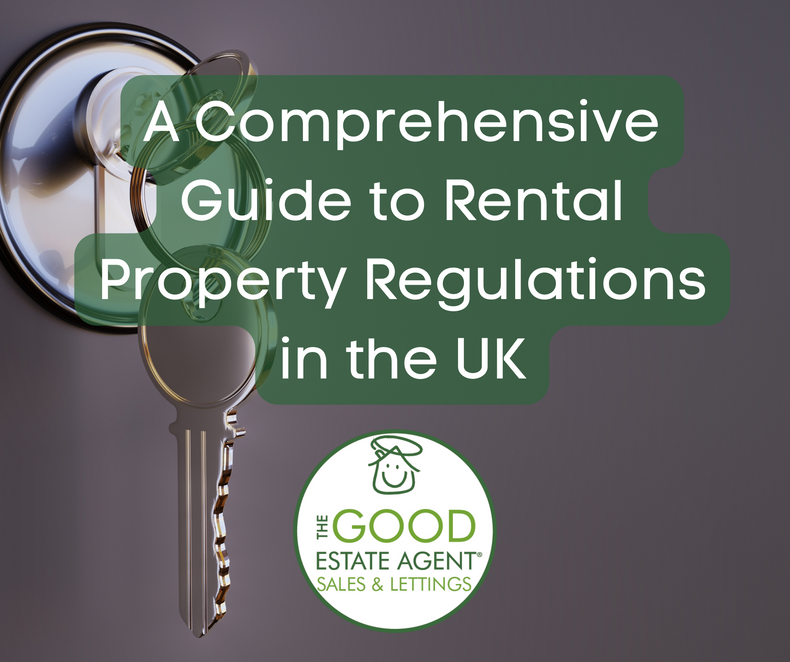Introduction: Renting out a property in the UK can be a lucrative investment, but it also comes with a range of legal obligations and regulations that landlords must adhere to. It is crucial for landlords to be well-versed in these regulations to ensure compliance and maintain a harmonious relationship with tenants. In this blog, we will explore the key regulations that landlords need to consider when renting out a property in the UK.
- Assured Shorthold Tenancy (AST) Agreements: An Assured Shorthold Tenancy (AST) is the most common type of tenancy in the UK. It provides both the landlord and tenant with certain rights and responsibilities. Landlords must ensure that a written AST agreement is in place before a tenant moves in, outlining key details such as rent amount, deposit protection, notice periods, and other terms and conditions.
- Right to Rent Checks: Under the Immigration Act 2014, landlords are obligated to carry out Right to Rent checks on all prospective tenants to verify their immigration status. These checks ensure that the tenant has the legal right to rent a property in the UK. Failure to comply with these checks can result in penalties and even criminal charges for landlords.
- Energy Performance Certificate (EPC): Prior to renting out a property, landlords must obtain a valid Energy Performance Certificate (EPC). An EPC provides information about a property's energy efficiency rating and recommends measures to improve it. It is a legal requirement for landlords to provide tenants with a copy of the EPC, enabling them to make informed decisions about energy usage.
- Gas Safety Regulations: Landlords who provide gas appliances or fittings in a rental property are legally required to have an annual Gas Safety Inspection carried out by a Gas Safe registered engineer. A Gas Safety Certificate must be obtained, and a copy should be provided to tenants before they move in. This ensures that gas appliances are safe and well-maintained, minimizing the risk of carbon monoxide leaks and other hazards.
- Electrical Safety Standards: From 1st July 2020, new electrical safety regulations were introduced, making it mandatory for landlords to have an Electrical Installation Condition Report (EICR) conducted by a qualified electrician every five years. This report assesses the safety and condition of the electrical installations within the property. The landlord must provide a copy of the EICR to tenants within 28 days and undertake any necessary remedial works outlined in the report.
- Deposit Protection: Landlords in the UK are required to protect their tenants' deposits in a government-approved tenancy deposit protection scheme. These schemes ensure that tenants can reclaim their deposit at the end of the tenancy, provided they meet the agreed terms and conditions. Additionally, landlords must provide tenants with prescribed information about the scheme within a specific timeframe.
- Fire Safety Regulations: Landlords have a legal responsibility to ensure that their rental property meets fire safety standards. This includes providing smoke alarms on every floor, carbon monoxide alarms in rooms with solid fuel-burning appliances, and ensuring safe access to escape routes. Regular checks and maintenance of fire safety equipment are essential.
- HMO Licensing: For properties that are classified as Houses in Multiple Occupation (HMO), additional regulations apply. HMOs are properties shared by three or more tenants who form two or more households and share facilities such as bathrooms and kitchens. Landlords of HMOs must obtain an HMO license from the local authority and comply with specific standards regarding fire safety, room sizes, and amenities.
Conclusion: Renting out a property in the UK involves a range of regulations and legal obligations that landlords must adhere to. From tenancy agreements to safety certifications, it is crucial for landlords to stay informed and ensure compliance. By understanding and following these regulations, landlords can create a safe and secure environment for tenants while safeguarding their investment in the rental property. Remember, it is always advisable to seek professional advice or consult local authorities for the most up-to-date and accurate information regarding rental property regulations in the UK.

